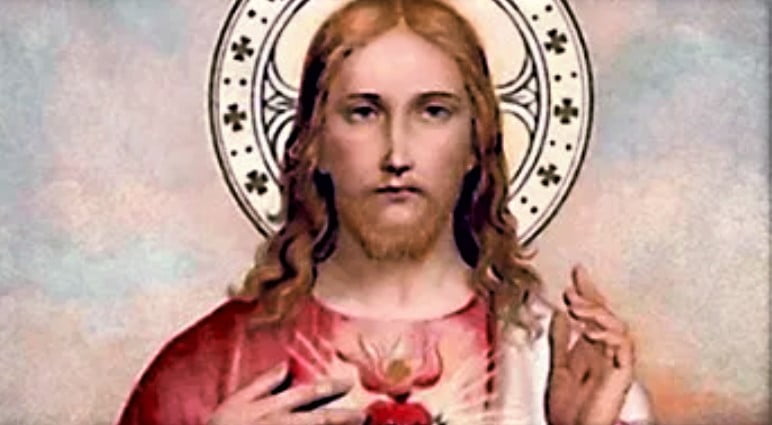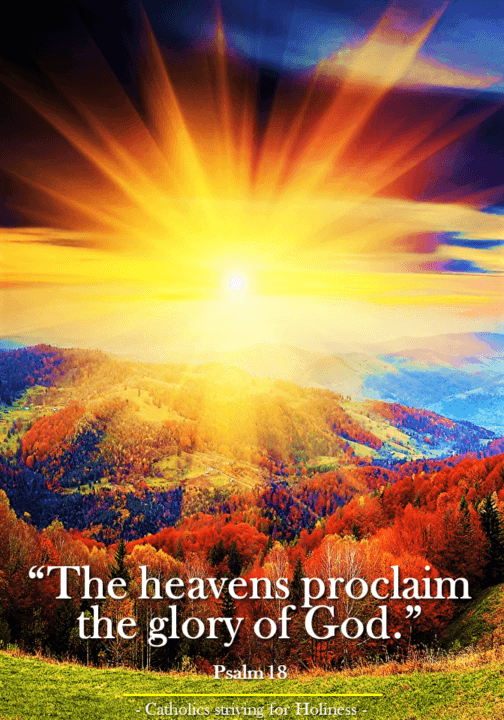TUESDAY 5TH WEEK IN ORDINARY TIME GOSPEL COMMENTARIES: HONOR GOD NOT ONLY WITH OUR LIPS BUT ALSO WITH OUR HEART (Mk 7:1-13).

Tuesday, 5th week of Ordinary Time
Mk 7:1-13
THE TRADITIONS OF THE ELDERS
When the Pharisees with some scribes who had come from Jerusalem
gathered around Jesus,
they observed that some of his disciples ate their meals
with unclean, that is, unwashed, hands.
(For the Pharisees and, in fact, all Jews,
do not eat without carefully washing their hands,
keeping the tradition of the elders.
And on coming from the marketplace
they do not eat without purifying themselves.
And there are many other things that they have traditionally observed,
the purification of cups and jugs and kettles and beds.)
So the Pharisees and scribes questioned him,
“Why do your disciples not follow the tradition of the elders
but instead eat a meal with unclean hands?”
He responded,
“Well did Isaiah prophesy about you hypocrites,
as it is written:
This people honors me with their lips,
but their hearts are far from me;
In vain do they worship me,
teaching as doctrines human precepts.
You disregard God’s commandment but cling to human tradition.”
He went on to say,
“How well you have set aside the commandment of God
in order to uphold your tradition!
For Moses said,
Honor your father and your mother,
and Whoever curses father or mother shall die.
Yet you say,
‘If someone says to father or mother,
“Any support you might have had from me is qorban”’
(meaning, dedicated to God),
you allow him to do nothing more for his father or mother.
You nullify the word of God
in favor of your tradition that you have handed on.
And you do many such things.”
- vv. 1-2 Hands were washed not for reasons of hygiene or good manners but because he custom had religious significance: it was a rite of purification. In Ex 30:17ff he Law of God laid down how priests should wash before offering sacrifice. Jewish tradition had extended this to all Jews before every meal, in an effort to give meals religious significance, which was reflected in the blessings which marked the start of meals. Ritual purification was a symbol of the moral purity a person should have when approaching God (Ps 24:3ff; 51:4 and 9); but the Pharisees had focussed on the mere external rite. Therefore Jesus restores the genuine meaning of these precepts of the Law, whose purpose is to teach the right way to render homage to God (cf. Jn 4:24).
- vv. 3-5 We can see clearly from this text that very many of those to whom St Mark’s Gospel was first addressed were Christians who had been pagans and were unfamiliar with Jewish customs. The Evangelist explains these customs in some detail, to help them realize the significance of the events and teachings reported in the Gospel story.
- Similarly, Sacred Scripture needs to be preached and taught in a way which puts it within reach of its hearers. This is why Vatican II teaches that “it is for the bishops suitably to instruct the faithful . . . by giving them translations of the sacred texts which are equipped with necessary and really adequate explanations. Thus the children of the Church can familiarize themselves safely and profitably with the Sacred Scriptures, and become steeped in their spirit” (Del Verbum, 25).
- vv. 11-13 For an explanation of this text cf. note on Mt 15:5-6. Jesus Christ, who is the authentic interpreter of the Law, because as God he is its author, explains the scope of the fourth commandment and points out the mistakes made by Jewish casuistry. There were many other occasions when he corrected mistaken interpretations offered by the Jewish teachers for example, when he recalls that phrase of the Old Testament, “Go and learn what this means, I desire mercy, and not sacrifice” (Hos 6:6; 1 Sam 15:22; Sir 35:4) in Mt 9:13.
- With the words of the Gospel, Our Lord wishes to remind us of the importance of doing things, not in a routinary and mechanical way, but as fruit of our interior desire to serve, love and glorify Him.
- For example, when we pray, it is not enough to utter the words of a formula for in doing so, it would just be a lip service to God. Rather, when we pray, we must strive to mean what we are saying and to whom we are saying, putting our interior senses, saying them from our heart. And if our prayer is authentic, it must manifest itself in exterior deeds and influence in our daily conduct.
- Our Lord also wishes to remind us that with his arrival, he is the authentic and definitive interpreter of the Sacred Scriptures. The ritual precepts of the Old Testament which consist of hundreds of casuistic instructions, are superseded by the New Testament with the coming of Our Lord Jesus Christ, who emphasizes not on the mere exterior fulfillment, but rather, the fulfillment of His New Commandment of love which must arise from the heart of his disciples.
VIDEO COMMENTARY ON THE 1ST READING (Gn 1:20–2:4a)
TOPIC: DID GOD CREATE THE UNIVERSE OR IS THE BIG BANG THEORY MORE BELIEVABLE?

God said, “Let the water teem with an abundance of living creatures, and on the earth let birds fly beneath the dome of the sky.” And so it happened: God created the great sea monsters and all kinds of swimming creatures with which the water teems, and all kinds of winged birds. God saw how good it was, and God blessed them, saying, “Be fertile, multiply, and fill the water of the seas; and let the birds multiply on the earth.” Evening came, and morning followed — the fifth day.
Then God said, “Let the earth bring forth all kinds of living creatures: cattle, creeping things, and wild animals of all kinds.” And so it happened: God made all kinds of wild animals, all kinds of cattle, and all kinds of creeping things of the earth. God saw how good it was. Then God said: “Let us make man in our image, after our likeness. Let them have dominion over the fish of the sea, the birds of the air, and the cattle, and over all the wild animals and all the creatures that crawl on the ground.”
God created man in his image; in the divine image he created him; male and female he created them.
God blessed them, saying: “Be fertile and multiply; fill the earth and subdue it. Have dominion over the fish of the sea, the birds of the air, and all the living things that move on the earth.” God also said: “See, I give you every seed-bearing plant all over the earth and every tree that has seed-bearing fruit on it to be your food; and to all the animals of the land, all the birds of the air, and all the living creatures that crawl on the ground, I give all the green plants for food.” And so it happened. God looked at everything he had made, and he found it very good. Evening came, and morning followed — the sixth day.
Thus the heavens and the earth and all their array were completed. Since on the seventh day God was finished with the work he had been doing, he rested on the seventh day from all the work he had undertaken. So God blessed the seventh day and made it holy, because on it he rested from all the work he had done in creation.
Such is the story of the heavens and the earth at their creation.
[VIDEO – WHAT IS THE BIG BANG – BY MONKEYSEE] https://www.youtube.com/watch?v=JYwSz5qTfDwSubscribe to MonkeySee for more great videos: http://goo.gl/Py1pN0 Science expert Emerald Robinson explains the widely accepted ‘Big Bang’ theory, about the origin of the universe.To view over 15,000 other how-to, DIY, and advice videos on any topic, visit http://www.monkeysee.com/In today’s and yesterday’s first readings (Genesis 1:1-19 for 8 Feb), Genesis ushers us into the origins of the universe and of man. But this story of Creation is met with a lot of skepticism by many scientists, particularly those who are atheists and agnostics. Find out how science and our Catholic faith can meld on the topic of creation of the universe.